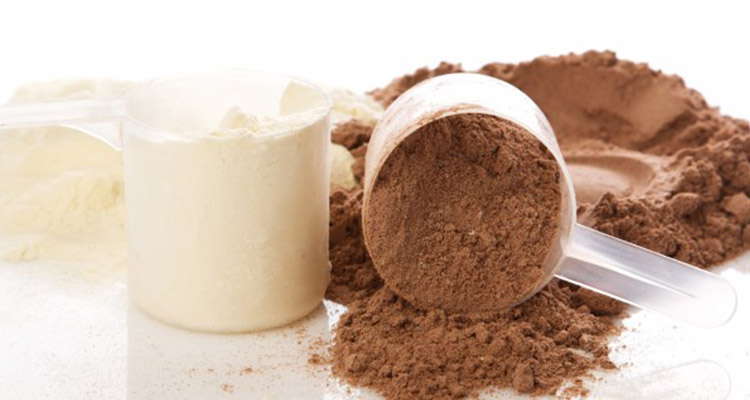Table of Contents
For some, it’s the morning ritual; for others, an occasional treat, while some skip it altogether. We’re talking about one of the most consumed beverages globally: coffee. But what happens to your body when you give it up? Are there any withdrawal symptoms, or is it a walk in the park? In this article, we’ll delve into how caffeine works, its potential benefits, and what happens when you quit.
Coffee is one of the most popular beverages, mainly for its stimulating effects. Did you know that almost 2 billion cups of coffee are consumed worldwide each day? Out of all countries, Finland takes the crown in this contest. Residents of this Nordic country average 4 cups a day per person. Norway follows closely with 3 cups, and Denmark with 2 cups per person daily. [1]
You will certainly not be surprised to learn that caffeine is the substance responsible for the stimulating effects of coffee.
What exactly is caffeine?
Caffeine is a natural compound found in the leaves, seeds, or fruits of plants, acting as a natural insecticide protecting them from pests. It’s most abundant in coffee beans, but is also present in tea leaves, cocoa beans, guarana, and kola nuts. [2]
Where is caffeine mainly found?
Let’s take a closer look at caffeine content in some common sources:
1. Coffee
The amount of caffeine in your favourite cup of coffee varies depending on the type of coffee and how it’s brewed. For instance, your average espresso contains around 80 mg of caffeine. But don’t sleep on instant coffee, as that one is averaging around 30 mg of caffeine per 1 teaspoon. [3]
What about decaf coffee?
You might be surprised to learn that decaf coffee still contains some amount of caffeine. A cup of decaf espresso may contain anywhere from 3 to 16 mg of caffeine. [4]

1. Improves Athletic Performance
Caffeine is one of the most studied substances for enhancing athletic performance. That’s why it’s a common ingredient in complex pre-workout supplements. It has been shown to have a positive impact on strength, coordination, endurance, and reaction time. These effects on athletic performance may be attributed to reducing fatigue and increasing adrenaline levels after caffeine intake, as well as its ability to stimulate the central nervous system. [20-21]
2. Promotes Fat Burning and Aids Weight Loss
Caffeine is often a component of fat burners for a reason. Apart from boosting your brain and muscle activity, it can also rev up your metabolism. It has a thermogenic effect, meaning it can increase body temperature in the short term. This requires the body to expend more energy, resulting in burning more calories at rest and during exercise, basically “for free”.
3. Helps Improve Mood
Coffee has been shown to positively affect the mood. The caffeine ingested increases serotonin and dopamine levels in the body. Some studies suggest a connection between coffee consumption and reduced levels of perceived anxiety or a decreased risk of depression. [18, 29]
However, the question remains: to what extent do other factors play a role, factors that studies have not considered? However, you will certainly agree with us that a cup of good coffee, whether alone or in the company of your loved ones, can be a great way to relax, unwind, and kick stress to the curb.
4. Has Positive Health Effects
Coffee can also have positive effects on some areas related to health. While coffee itself is certainly not a panacea, many studies have observed a relationship between coffee consumption and a lower risk of developing type II diabetes, Alzheimer’s, or Parkinson’s disease. It also appears to help reduce the risk of liver cirrhosis or stroke. [22 – 26]
5. Helps Replenish Antioxidants
You may have heard that coffee contains compounds with antioxidant properties, and it’s true. In fact, it contains more antioxidants than cocoa or green tea. Antioxidants play a crucial role in fighting free radicals in our bodies, which, in excess, could damage our cells and contribute to the development of cardiovascular, metabolic, or neurological disorders. Enjoying a cup of coffee can help replenish these beneficial fighters. [27-28]
What should you remember?
Coffee can undoubtedly be a beneficial part of your day. In the right amount, if not overused, it can have many positive effects. It can support alertness, concentration, boost athletic performance, and aid in fat burning. However, the body can develop a tolerance to caffeine over time, and the same dose may no longer be sufficient.
Therefore, occasionally giving yourself a “caffeine detox” can be beneficial. The body’s reaction to quitting caffeine can vary, especially depending on how much you were accustomed to consuming daily. With smaller doses, the symptoms are milder, while with higher doses, you might experience more discomfort. Symptoms like headaches, fatigue, or irritability typically last only a short while, from a few hours to a few days. If you endure these days, you can return to your favourite cup of coffee and enjoy its benefits again without unnecessary escalation of caffeine intake.
Have you ever tried taking a break from your favourite cup of coffee for a few days? Or are you just now considering it? If you liked the article, support it by sharing it so your friends can learn what happens to their bodies when they stop drinking coffee. Perhaps you’ll inspire someone to take a break from coffee for a while and rediscover its many benefits.
[1] Coffee Consumption by Country in 2024: Top 10 Countries – https://coffeeaffection.com/coffee-consumption-by-country/
[2] REYES, C. M., CORNELIS, M. C. Caffeine in the Diet: Country-Level Consumption and Guidelines – https://www.ncbi.nlm.nih.gov/pmc/articles/PMC6266969/
[3] LUDWIG, I. A., MENA, P., CALANI, L., CID, C., DEL RIO, D., LEAN, M.E., CROZIER, A. Variations in caffeine and chlorogenic acid contents of coffees: what are we drinking? – https://pubmed.ncbi.nlm.nih.gov/25014672/
[4] Decaffeinated Coffee Is Not Caffeine-free, Experts Say – https://www.sciencedaily.com/releases/2006/10/061012185602.htm
[5] KIM, J., KIM, J., SHIM, J., LEE, C.Y., LEE, K.W., LEE, H.J. Cocoa phytochemicals: recent advances in molecular mechanisms on health – https://pubmed.ncbi.nlm.nih.gov/24580540/
[6] Caffeine – https://www.efsa.europa.eu/en/topics/topic/caffeine
[7] ROCHA, P.L.A., LIMA, A.L.C., SAUNDERS, B., REIS, C.E.G. Development of a Caffeine Content Table for Foods, Drinks, Medications and Supplements Typically Consumed by the Brazilian Population – https://www.ncbi.nlm.nih.gov/pmc/articles/PMC9608580/
[8] LIN, Y.S., TSAI, Y.J., TSAY, J.S., LIN, J.K. Factors affecting the levels of tea polyphenols and caffeine in tea leaves – https://pubmed.ncbi.nlm.nih.gov/12643643/
[9] DALY, J.W., BUTTS-LAMB, P. & PADGETT, W. Subclasses of adenosine receptors in the central nervous system: Interaction with caffeine and related methylxanthines – https://link.springer.com/article/10.1007/BF00734999#citeas
[10] THORN, C.F, AKLILLU, E., MCDONAGH, E.M., KLEIN, T.E., ALTMAN, R.B. PharmGKB summary: caffeine pathway – https://www.ncbi.nlm.nih.gov/pmc/articles/PMC3381939/
[11] BOULENGER, J.P., PATEL, J., POST, R.M., PARMA, A.M., MARANGOS, P.J. Chronic caffeine consumption increases the number of brain adenosine receptors – https://pubmed.ncbi.nlm.nih.gov/6298543/
[12] JULIANO, L.M., HUNTLEY, E.D., HARRELL, P.T., WESTERMAN, A.T. Development of the caffeine withdrawal symptom questionnaire: caffeine withdrawal symptoms cluster into 7 factors – https://pubmed.ncbi.nlm.nih.gov/22341956/
[13] NOWACZEWSKA, M., WICIŃSKI, M., KAŹMIERCZAK, W. The Ambiguous Role of Caffeine in Migraine Headache: From Trigger to Treatment – https://www.ncbi.nlm.nih.gov/pmc/articles/PMC7468766/
[14] ADDICOTT, M.A., YANG, L.L., PEIFFER, A.M., BURNETT, L.R., BURDETTE, J.H., CHEN, M.Y., HAYASAKA, S., KRAFT, R.A., MALDJIAN, J.A., LAURIENTI, P.J. The effect of daily caffeine use on cerebral blood flow: How much caffeine can we tolerate? – https://www.ncbi.nlm.nih.gov/pmc/articles/PMC2748160/
[15] SAJADI-ERNAZAROVA, K.R., ANDERSON, J., DHAKAL, A., HAMILTON, R.J. Caffeine Withdrawal – https://www.ncbi.nlm.nih.gov/books/NBK430790/
[16] VOLKOW, N.D., WANG, G.J., LOGAN, J., ALEXOFF, D., FOWLER, J.S., THANOS, P.K., WONG, C., CASADO, V., FERRE, S., TOMASI, D. Caffeine increases striatal dopamine D2/D3 receptor availability in the human brain – https://www.ncbi.nlm.nih.gov/pmc/articles/PMC4462609/
[17] RODAK, K., KOKOT, I., KRATZ, E.M. Caffeine as a Factor Influencing the Functioning of the Human Body—Friend or Foe? – https://www.mdpi.com/2072-6643/13/9/3088
[18] GROSSO, G., MICEK, A., CASTELLANO, S., PAJAK, A., GALVANO, F. Coffee, tea, caffeine and risk of depression: A systematic review and dose-response meta-analysis of observational studies – https://pubmed.ncbi.nlm.nih.gov/26518745/
[19] WATSON, E.J., COATES, A.M., KOHLER, M., BANK,S S. Caffeine Consumption and Sleep Quality in Australian Adults – https://www.ncbi.nlm.nih.gov/pmc/articles/PMC4997392/
[20] 20 Martins, G.L., Guilherme, J.P.L.F., Ferreira, L.H.B., de Souza-Junior, T.P. and Lancha, A.H. Jr. Caffeine and Exercise Performance: Possible Directions for Definitive Findings – https://www.frontiersin.org/articles/10.3389/fspor.2020.574854/full
[21] GUEST, S.N. et al. International society of sports nutrition position stand: caffeine and exercise performance – https://www.tandfonline.com/doi/full/10.1186/s12970-020-00383-4
[22] MAIA, L., DE MENDONÇA, A. Does caffeine intake protect from Alzheimer’s disease? – https://onlinelibrary.wiley.com/doi/10.1046/j.1468-1331.2002.00421.x
[23] HERNÁN, M.A. et al. A meta-analysis of coffee drinking, cigarette smoking, and the risk of Parkinson’s disease – https://onlinelibrary.wiley.com/doi/10.1002/ana.10277
[24] CORRAO, G., ZAMBON, A., BAGNARDI, V., D’AMICIS, A., KLATSKY, A. Collaborative SIDECIR Group. Coffee, caffeine, and the risk of liver cirrhosis – https://pubmed.ncbi.nlm.nih.gov/11557177/
[25] LARSSON, S.C., ORSINI, N. Coffee consumption and risk of stroke: a dose-response meta-analysis of prospective studies – https://pubmed.ncbi.nlm.nih.gov/21920945/
[26] Coffee consumption and health: umbrella review of meta-analyses of multiple health outcomes – https://www.bmj.com/content/359/bmj.j5024
[27] SVILAAS, A., SAKHI, A.K., ANDERSEN, L.F., SVILAAS, T., STRÖM, E.C., JACOBS, D.R. JR, OSE, L., BLOMHOFF, R. Intakes of antioxidants in coffee, wine, and vegetables are correlated with plasma carotenoids in humans – https://pubmed.ncbi.nlm.nih.gov/14988447/
[28] ZARIC, B.L., MACVANIN, M.T., ISENOVIC, E.R. Free radicals: Relationship to Human Diseases and Potential Therapeutic applications – https://www.sciencedirect.com/science/article/abs/pii/S1357272522001911?via%3Dihub
[29] NEHLIG, A., DAVAL, J.L., DEBRY, G. Caffeine and the central nervous system: mechanisms of action, biochemical, metabolic and psychostimulant effects – https://pubmed.ncbi.nlm.nih.gov/1356551/
[30] TEMPLE, J.L., BERNARD, C., LIPSHULTZ, S.E., CZACHOR, J.D., WESTPHA,L J.A., MESTRE, M.A. The Safety of Ingested Caffeine: A Comprehensive Review – https://www.ncbi.nlm.nih.gov/pmc/articles/PMC5445139/
[31] PERVIN, M., UNNO, K., TAKAGAKI, A., ISEMURA, M., NAKAMURA, Y. Function of Green Tea Catechins in the Brain: Epigallocatechin Gallate and its Metabolites – https://www.mdpi.com/1422-0067/20/15/3630
[32] Green Tea Extract – https://examine.com/supplements/green-tea-extract/research/






Leave a Reply
You must be logged in to post a comment.